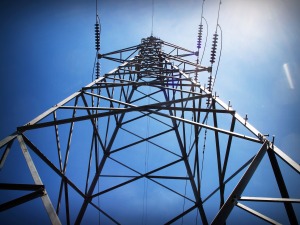 2017 was a year when sustainability, climate change and emissions reductions came to the fore on both private and public agendas. And so as we tumble towards 2018, I would like to do a run-down of the year’s developments that are helping to sustain a future.
2017 was a year when sustainability, climate change and emissions reductions came to the fore on both private and public agendas. And so as we tumble towards 2018, I would like to do a run-down of the year’s developments that are helping to sustain a future.
Paris Agreement
One of the biggest developments early in 2017 was President Trump’s decision to pull out of the Paris Agreement (see blog). However, this only served to galvanise worldwide support for the agreement and as of today, 172 out of 197 countries have ratified it. The President’s actions also gave birth to the “We Are Still In” movement of over 2700 US companies, cities and states, together representing $6.2 trillion of the US economy, coming together to pledge allegiance to the Paris Agreement goals and ensure that America abides by its commitments, even when it withdraws from the agreement. The US withdrawal has also opened the door for Emmanuel Macron to become a leading voice in the fight against climate change, as evidenced at the One Planet Summit this December.
Electric vehicles
2017 also saw a reassessment of forecasts relating to electric vehicles. In a report published in July, Bloomberg New Energy Finance stated that it estimates that by 2040, 54% of new car sales and 33% of the global car fleet will be electric (see blog), a much more bullish forecast than it had issued just a year before. Added to this, a number of countries and car companies announced the ban or phase out of petrol-only vehicles. For example, Volvo announced that it would be going all-electric with every car in its range to have an electric train by 2019 and the UK and France announced a ban on the sale of new petrol and diesel cars from 2040.
Renewable power generation
Records were set in renewable energy generation in 2017. In the UK, low-carbon energy sources made up 52% of the energy mix throughout the year, making 2017 the “greenest” year on record for the UK. The country also succeeded in having a full 24 hours of coal-free power generation in May 2017 (see blog). Furthermore, in October 2017, wind power provided nearly a quarter of all energy generation in Europe as a whole. These records have been assisted by the continued falling costs of solar and wind power technology and renewed investment in renewable energy infrastructure. For example, earlier this year the world’s first floating wind farm came into operation offshore Scotland, operated by Statoil.
Business initiatives
On the business side, the RE100 group of companies committed to 100% renewable power (see blog) grew again this year to 116 members including Google, Apple, Unilever, Walmart, ABInv Bev…to name but a few! These huge, multinational companies have each set the goal of obtaining 100% of their electricity from renewable sources within the next decade or so. Traditional oil and gas companies have also embarked on the energy transition journey. Shell now commits $1 billion annually to investments in clean energy. BP is committed to a lower-carbon future with a move towards greater investments in gas and carbon capture and storage technology. Both companies are also members of the Oil and Gas Climate Initiative (see blog), which includes the world’s biggest oil and gas companies. These companies have committed US$1 billion of funding to be invested over the next decade in innovative technologies and start-ups which propose solutions to substantially reducing greenhouse gas emissions.
Plastic pollution
2017 also witnessed the first UN Ocean Conference, which highlighted the plight of our oceans due to growing plastic pollution and climate change (see blog). The Ocean Conference raised $5.24 billion in commitments to protect the oceans and created a Call for Action which affirmed the signatories’ “strong commitment to conserve and sustainably use our oceans, seas and marine resources for sustainable development”. Greater awareness of the dangers of plastic pollution have also resulted in individual action to fight plastic pollution, including the Ocean Cleanup whose plastic waste collection system aims to remove half of plastic waste in the Great Pacific Garbage Patch in five years; Adidas teaming up with Parley to develop trainers out of plastic and Plastic Odyssey which has developed a boat that can be powered by plastic.
A look to the future…
So what are the predictions for 2018? I think that the key themes will be:
- a broader conversation about peak oil, but due to falling demand rather than supply;
- the role of gas in the future energy mix;
- the use of blockchain to facilitate peer to peer energy transactions;
- the rise of electric vehicle alternatives, such as the hydrogen motor; and
- more innovative uses of existing technologies – such as the solar panelled motorway in China that intends to charge cars as they drive using wireless technology.
It’s been an eventful year and so for now, I wish you all a very happy and prosperous New Year!
